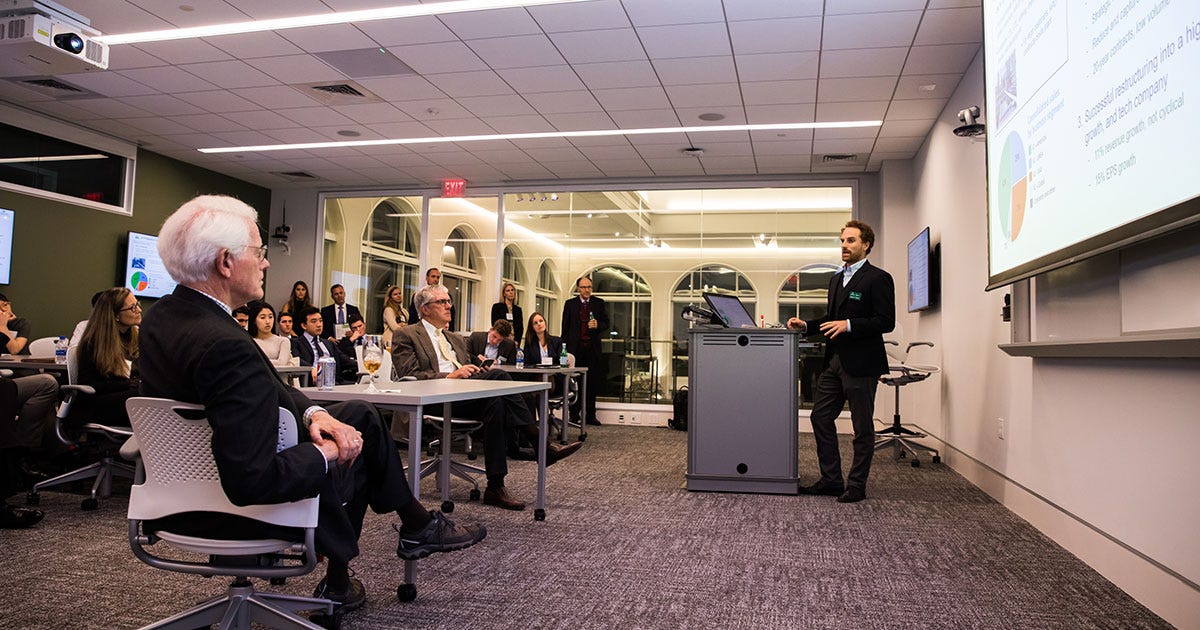COVID-19 catalyzed the revolution of remote work. I have noticed a concerning trend of more aspiring investors wanting to work fully remotely for a hedge fund.
In this article, I will discuss why you should not seek a fully remote work environment as a junior. I will use a single-manager hedge fund as an example, where I will use “founder” and “PM” interchangeably.
Let’s delve into the 5 reasons:
Learning through osmosis
Many aspirants think of fundamental research as primarily about modeling and reading. I hate to bust that myth for you: modeling and reading are the most commoditized aspects of the job. Perhaps this dangerous mindset is most prevalent among candidates from investment banking, and to a lesser extent, equity research.
If you believe that as long as you can model and write perfectly, you can work remotely and add value to the firm, you are sorely mistaken. Investing is a thinking business. It's not the modeling that generates profit (although proper modeling is essential), regardless of your preferred investment style. It's having a variant view on assumptions that turn out to be correct that generates returns.
Moreover, investing is not formulaic; if it were, all opportunities would be arbitraged away by machines (which is why net-nets and buying low P/E stocks as strategies have largely faded away.) Pros who have been through at least one or two market cycles have acquired enough pattern recognition to make better decisions than novices.
This pattern recognition and experience are challenging to acquire remotely because most investment professionals are better doers than teachers. Otherwise, we would have a world full of Warren Buffett, Seth Klarman, and Howard Marks whose writing has enlightened millions of aspiring investors.
Even after consuming Buffett and Marks letters, you may struggle when faced with a new situation due to the unique nuances. Therefore, you must learn by observing in person how your PM or Senior Analyst operates, and how they pitch ideas and manage risk. These insights are significantly diluted when observed through email interactions.
Those of you who have watched enough stock pitch competitions know, that it's the Q&A sessions afterward that offer the most value for your development and this is rarely captured in written conversations or virtual meetings.
If you merely aspire to be a "modeling monkey" without being compensated for your contribution to the firm's P&L, the aforementioned may not apply to you. You could indeed work fully remotely without understanding how your information is utilized by your PM to make decisions. However, what's the point? Your career is a dead end.
The benefit of cultivating relationships
The strongest human connections are forged in person (if you disagree, stop reading this article). Speaking for myself, despite working fully remotely throughout my tenure at my previous firm (largely due to the COVID environment), I had a genuine desire to work in person with my PM and the Senior Analyst. They are experienced, smart, and well-connected. Why wouldn't I want to build lasting relationships with them, regardless of whether this position is my final destination on the buy side?
One of the greatest perks of working at a hedge fund is the opportunity to get to know intelligent high-net-worth individuals on a personal level. Consider this: if you were on the sell-side, what are the odds of having direct access to someone with a 9-figure+ net worth given all the hierarchy? How could getting to know such individuals in person ever be detrimental to your career?
Things get subjective
Investment management is one of the most meritocratic professions because performance is quantifiable by definition (unfortunately, on a second-by-second basis).
That said, as long as human beings are involved, things will always get subjective. Every job involves sales; accept that.
When you aim to persuade your PM to act on your stock recommendation, that's sales. When your PM decides your bonuses, if she likes you, it can’t hurt the number. That's your successful salesmanship throughout the year paying off. That positive work attitude, eye contact, and body language your PM observes in person might just be the differentiator that gets your best idea into the book, ultimately contributing significantly to year-end P&L. You want to get paid, right?
Most of you are not delusional – you will make bad stock calls. You would be delusional to believe that people skills don’t play a role in keeping your job when things go wrong. Building relationships in person to be liked is the only goodwill that can shield you from being let go.
Promotions are also subjective (though less subjective than most corporate jobs). News headlines have already suggested that compared to people who work in office, (hybrid or fully) remote employees have a 35% increased chance of getting fired and are 31% less likely to be promoted.
Hedge funds are no different. If two junior analysts have made similar contributions to the firm, I will promote the one I like more— it's human nature.
Founder’s concerns
Every founder wants to see productivity out of their employees. Your PM does too.
I doubt any sensible PM would be open to hiring fully remote junior analysts because they hired you with the vision of coaching you into an autonomous idea generator. And PMs know you learn best in person.
Most funds are small firms, and the PM, as a business operator, wants to cultivate a culture that will scale with the firm. Email communications and weekly Zoom meetings alone cannot foster such a culture.
To say it bluntly, you are being compensated well above average to work for a high-net-worth individual. There will be no shortage of talented individuals eager to learn and partake in the success of managing a large pool of assets. So the PM can ask whatever the hell they want out of their employees because they are paying the bills (within the confines of HR regulations of course.)
Efficiency
Time is the most precious resource in investing because time spent on tasks that don't translate into portfolio decisions doesn’t contribute to P&L.
Being present in person is simply more efficient for work purposes. When you communicate via email, you must carefully consider your phrasing. During Zoom meetings, you know your PM is likely multitasking. Remember, it's always your responsibility to persuade them to act on your recommendation; if they're responding to emails during your stock pitch, it undermines your efforts.
In-person communication can also mitigate informational asymmetries that may arise if you forget to document an assumption or reasoning for a forecast. Less time spent rectifying informational gaps means more time available to explore ideas that could drive P&L.
PMs recognize this, which is why many insist on in-person work—it's beneficial for both the firm and you.
Conclusion
Stop inquiring about fully-remote hedge fund roles. If they exist, you should avoid them.
I highly doubt any sensible hedge fund (or mutual fund or sell-side analysts) would allow junior analysts to work fully remotely, especially if it's their first job in the field.
The exception would be for experienced investors. Even then, if you're transitioning to a new fund, it's prudent to demonstrate your capabilities in person before gradually transitioning to a hybrid or fully remote arrangement over time as you earn trust.
For experienced investment professionals with idea generation responsibilities or who will be running carve-outs, fully remote work can be appealing, especially if you don’t want to relocate for a new job.
If you want to advertise in my newsletter, contact me 👇
Resources for your public equity job search:
Research process and financial modeling (10% off using my code in link)
Check out my other published articles and resources:
📇 Connect with me: Instagram | Twitter | YouTube | LinkedIn
If you enjoyed this article, please subscribe and share it with your friends/colleagues. Sharing is what helps us grow! Thank you.








